The latest is the release of the South African Human Rights Commission’s report on the unrest that gripped the country in 2021, killing more than 350 people. The report has left the country none the wiser as to the real reasons behind the unrest, leaving us vulnerable yet again to similar acts.
At Maverick Citizen we are acutely aware that issues of violence are not merely a matter of law enforcement because that is a reactive measure. Violence happens when people are not heard, face the indignity of cyclical poverty and are starved of basic human rights such as food, employment, housing, access to health services and basic education. In its 2022 report on South Africa Human Rights Watch released a report warning that:
“South Africa failed to take meaningful measures to improve protection of social and economic rights, which has been undermined by widespread unemployment, inequality, poverty, the government’s response to the Covid-19 pandemic, and corruption. The authorities struggled to ensure law enforcement responded effectively to some of the worst riots and looting in the country since the end of apartheid. The violent riots triggered by the imprisonment of former president Jacob Zuma for contempt of court claimed more than 330 lives and caused an estimated R50.4-billion ($3.4-billion) in damage.”
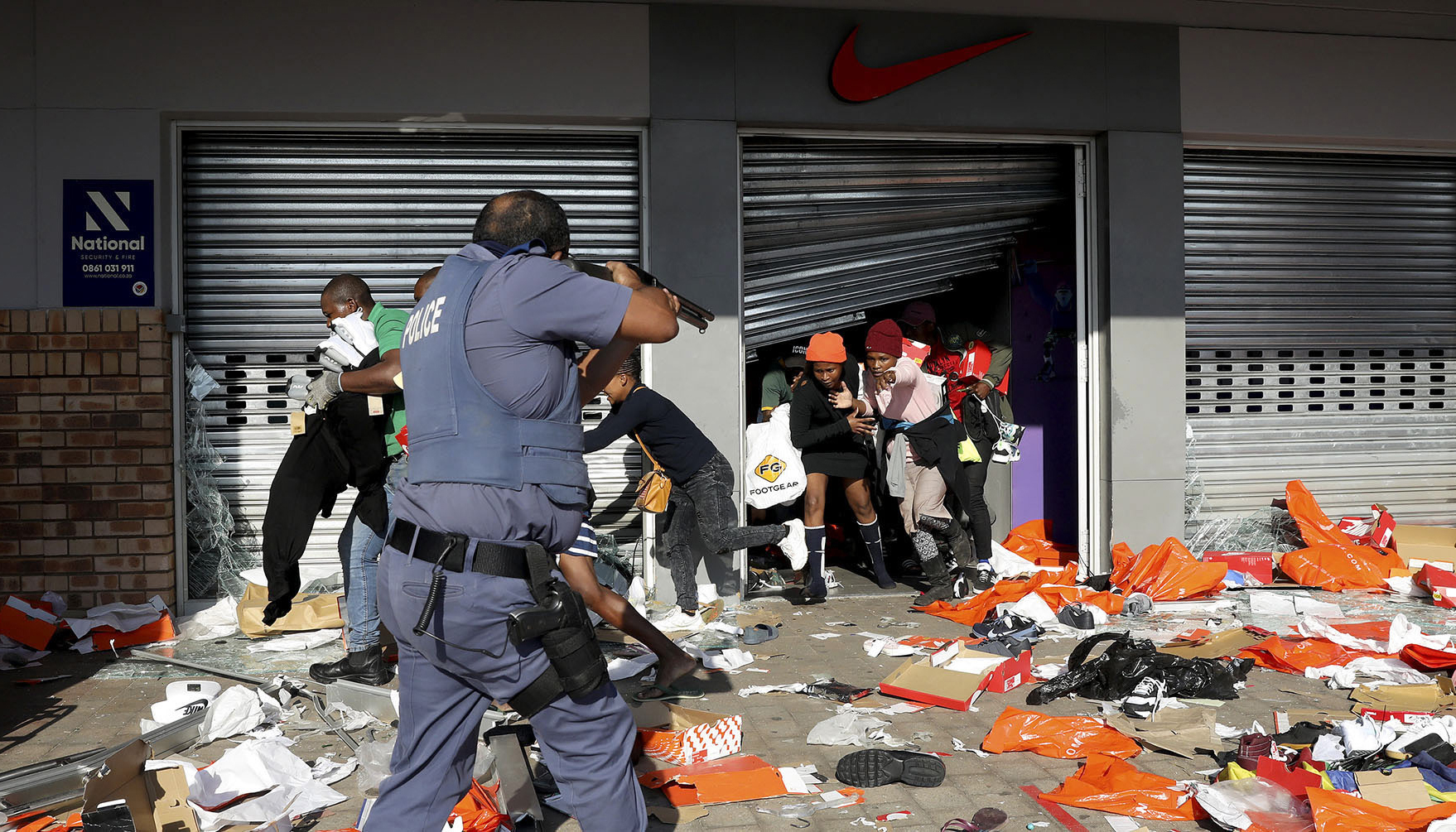 Police try to control looting during protests in Durban on 12 July 2021. Former president Jacob Zuma was arrested on 7 July and sentenced to 15 months in prison for contempt of court. (Photo: EPA-EFE / STR)
Police try to control looting during protests in Durban on 12 July 2021. Former president Jacob Zuma was arrested on 7 July and sentenced to 15 months in prison for contempt of court. (Photo: EPA-EFE / STR)
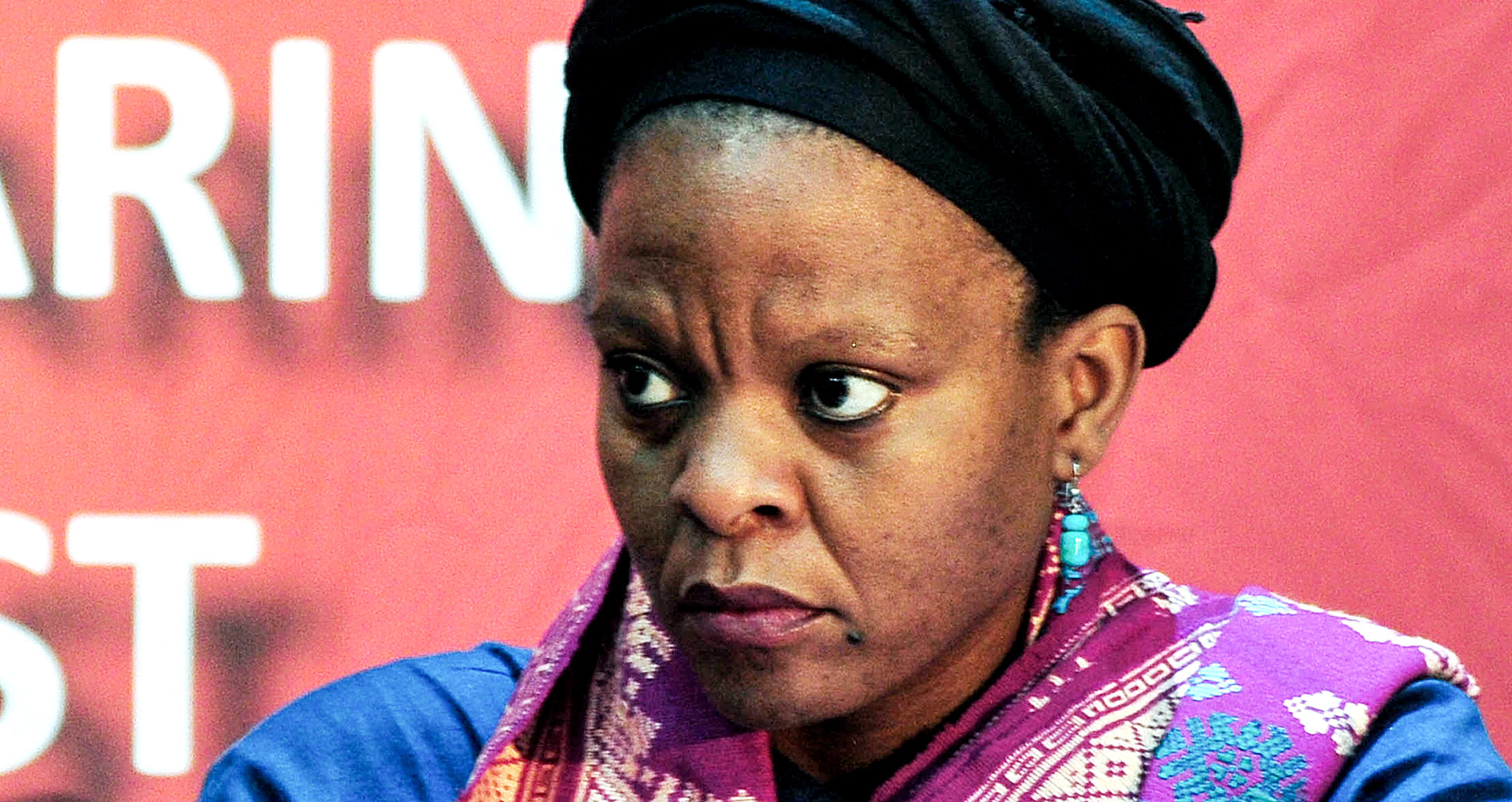 SAHRC Commissioner Philile Ntuli in 2021. (Photo: Gallo Images / Darren Stewart)
SAHRC Commissioner Philile Ntuli in 2021. (Photo: Gallo Images / Darren Stewart)
In a press briefing on Monday outlining the findings and recommendation of the July 2021 unrest report, SAHRC commissioner Philile Ntuli told the country: “While the timing of the events of the July unrest coincided with the incarceration of former president Jacob Zuma, it couldn’t find evidence to link the two events. It is probable that the unrest was taken to destabilise the South African economy. However, it will be ultimately within the purview of the South African Police Service and the National [Prosecuting] Authority to make a conclusive finding regarding the orchestration of the July unrest.”
The commission’s pronouncement is curious considering that in 2023 Daily Maverick reported that 65 people connected to the July unrest appeared in the Durban Magistrates’ Court after being arrested on charges of violence as a result of loyalty to Zuma. The main charge was that they protested, conspired and incited the use of violence to campaign for Zuma’s release from prison, resulting in public violence, looting, disruption of normal activities, loss of life, damage to infrastructure and destruction of businesses.
Read more in Daily Maverick: July ’21 unrest — 65 in dock facing terrorism and other charges linked to deadly violence
Before that a high-level presidential panel chaired by Professor Sandy Africa, who’s background includes extensive work in intelligence and state security, found in a report that the violence was linked to poverty, political discontent and the incapacitation of government institutions. Some of the key findings were:
- The weakness of state institutions generally, a phenomenon that has been referred to as the hollowing out of these institutions;
- High unemployment, with youth unemployment above 70% and no consistent, continuous plan to address this;
- Inherited high levels of poverty and deep inequality;
- Poor spatial planning, leading to overcrowded and unsuitable living conditions for many, with informal settlements emerging in crowded urban spaces as people move to the cities in search of opportunities;
- Rampant corruption at various levels of government;
- The phenomenon of sponsored State Capture, as understood in the South African context; and
- The frustrations caused by the Covid-19 restrictions, adding to feelings of despair among the population.
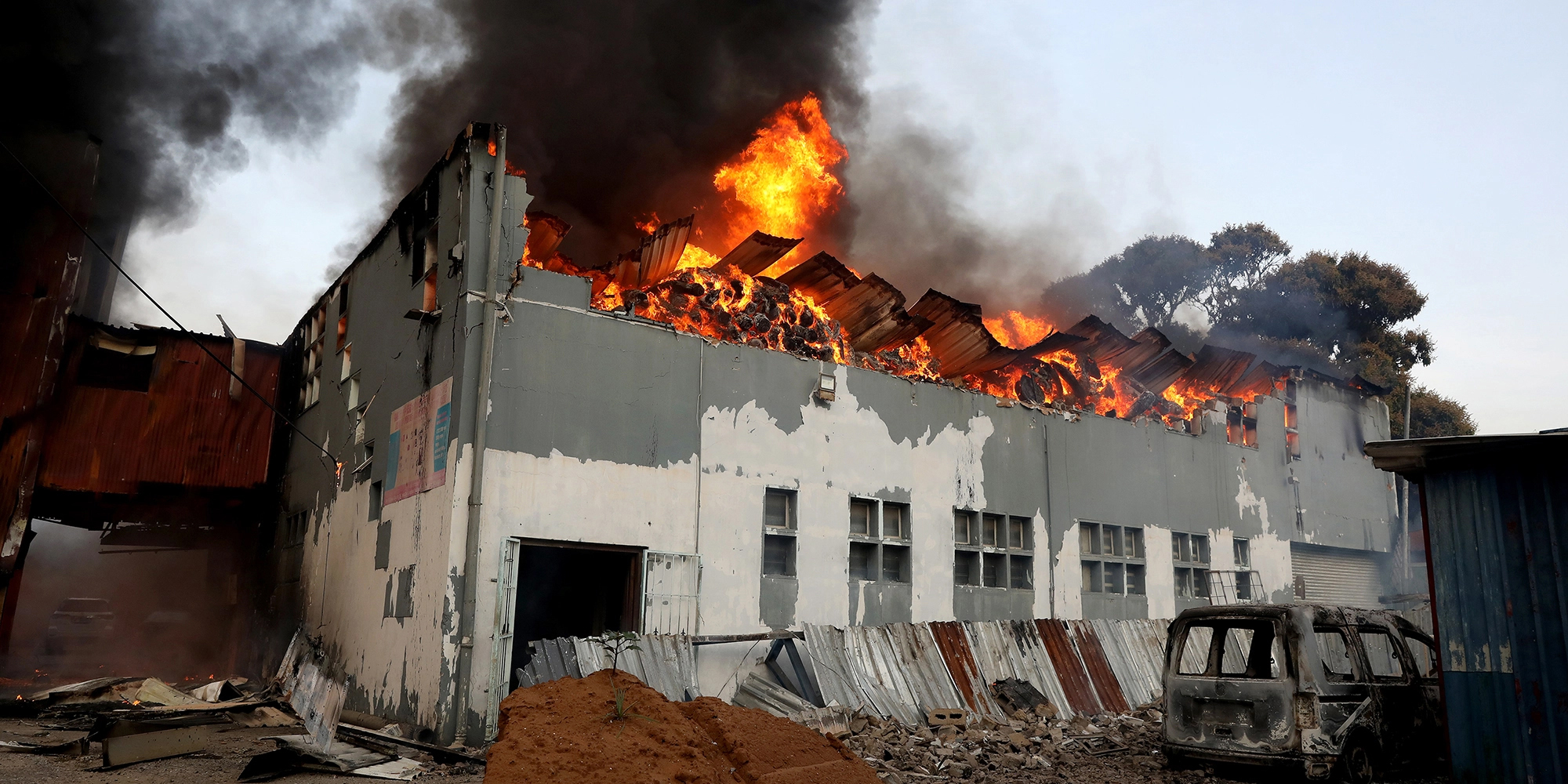 A business premises ablaze during widespread looting and protests in Durban on 12 July 2021. (Photo: EPA-EFE / STR)
A business premises ablaze during widespread looting and protests in Durban on 12 July 2021. (Photo: EPA-EFE / STR)
What is important is not which report is right but the conditions that existed in the country in 2021, and still exist, which precipitated the deadly outburst. KwaZulu-Natal flared up first and was hardest hit. The destructive force still reverberates through the city. Driving through the inner city of Durban, one wrong turn leads you to an eerie “dead zone” of sorts with abandoned buildings that were once businesses have been hollowed out. One can only imagine what happened to the livelihoods of the people who once worked there.
 A high-level presidential panel chaired by Professor Sandy Africa found that the violence was linked to poverty. (Photo: Alet Pretorius)
A high-level presidential panel chaired by Professor Sandy Africa found that the violence was linked to poverty. (Photo: Alet Pretorius)
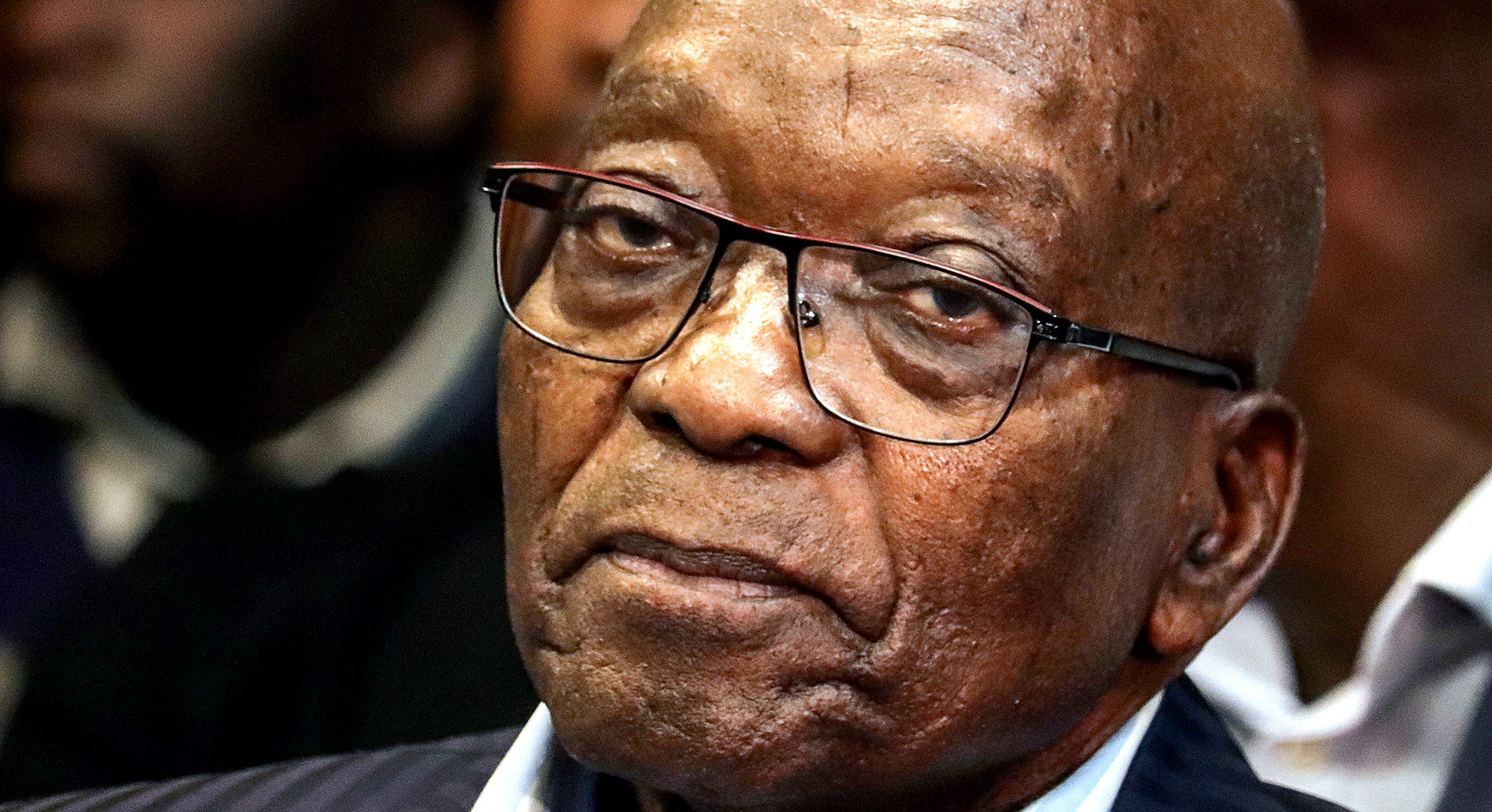 Former president Jacob Zuma in 2023. (Photo: Gallo Images / Sharon Seretlo)
Former president Jacob Zuma in 2023. (Photo: Gallo Images / Sharon Seretlo)
What must not be lost, however, is that at the centre of this are poor people who are being inflicted with double violence: First the violence of poverty and then the violence of the riotous orchestration. One cannot glibly point responsibility for finding and bringing to book the orchestrators of the unrest to the SAPS and the National Prosecuting Authority – we already know that. Disappointingly, the SAHRC, as per the expectation of its mandate, does not make any recommendations on the urgent need and possible interventions for the country’s poor socioeconomic conditions.
I’m not convinced that this latest report takes us much further than the previous one. The destruction, however, seems destined to linger and possibly be repeated because of the refusal to deal with the question of how to treat people humanely. This means that the protagonists of the unrest – whether it’s Zuma and his loyalists or unknown economic saboteurs – will continue to use poor people as their pawns, to our country’s destruction.
So, yet again we find ourselves holding our breath and gripped with nervous energy about when our next tipping point will be and to what end. DM




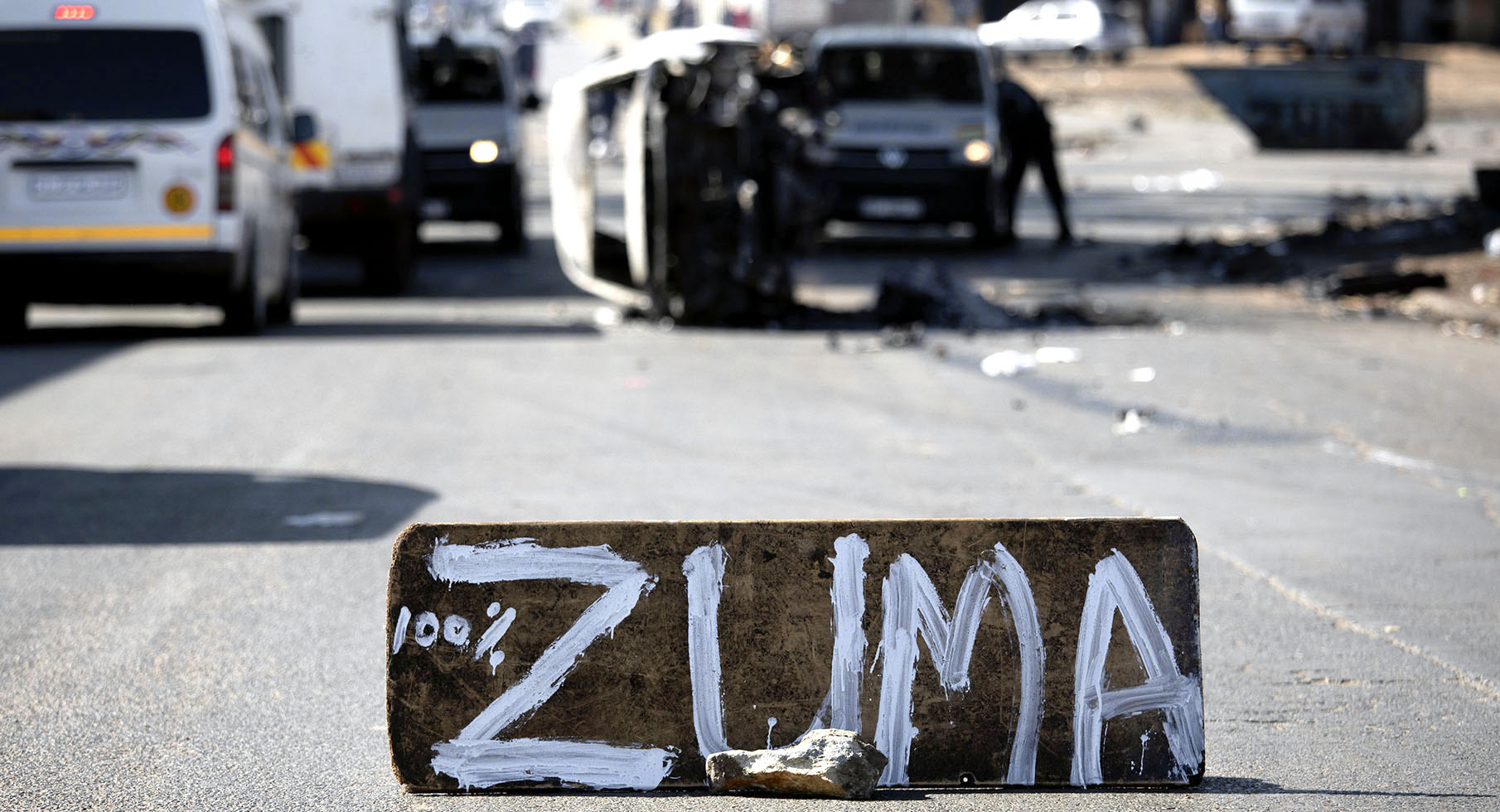 Former President Jacob Zuma, 2023.
(Photo: Gallo Images / Sharon Seretlo)
Former President Jacob Zuma, 2023.
(Photo: Gallo Images / Sharon Seretlo) 